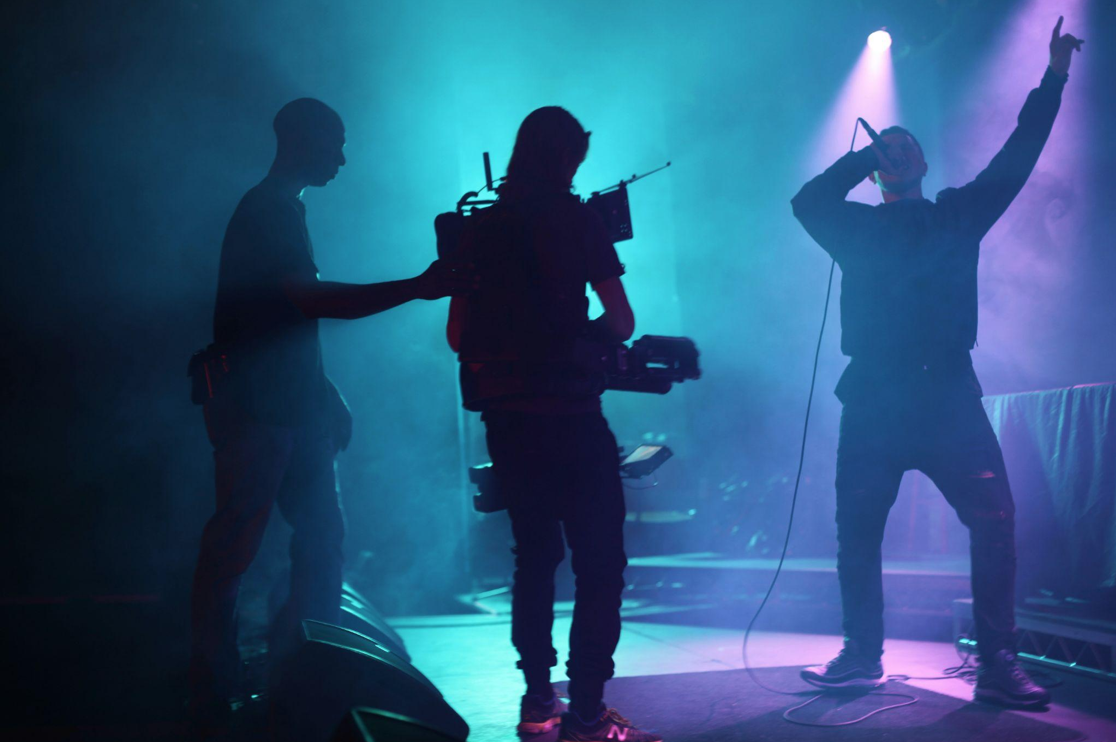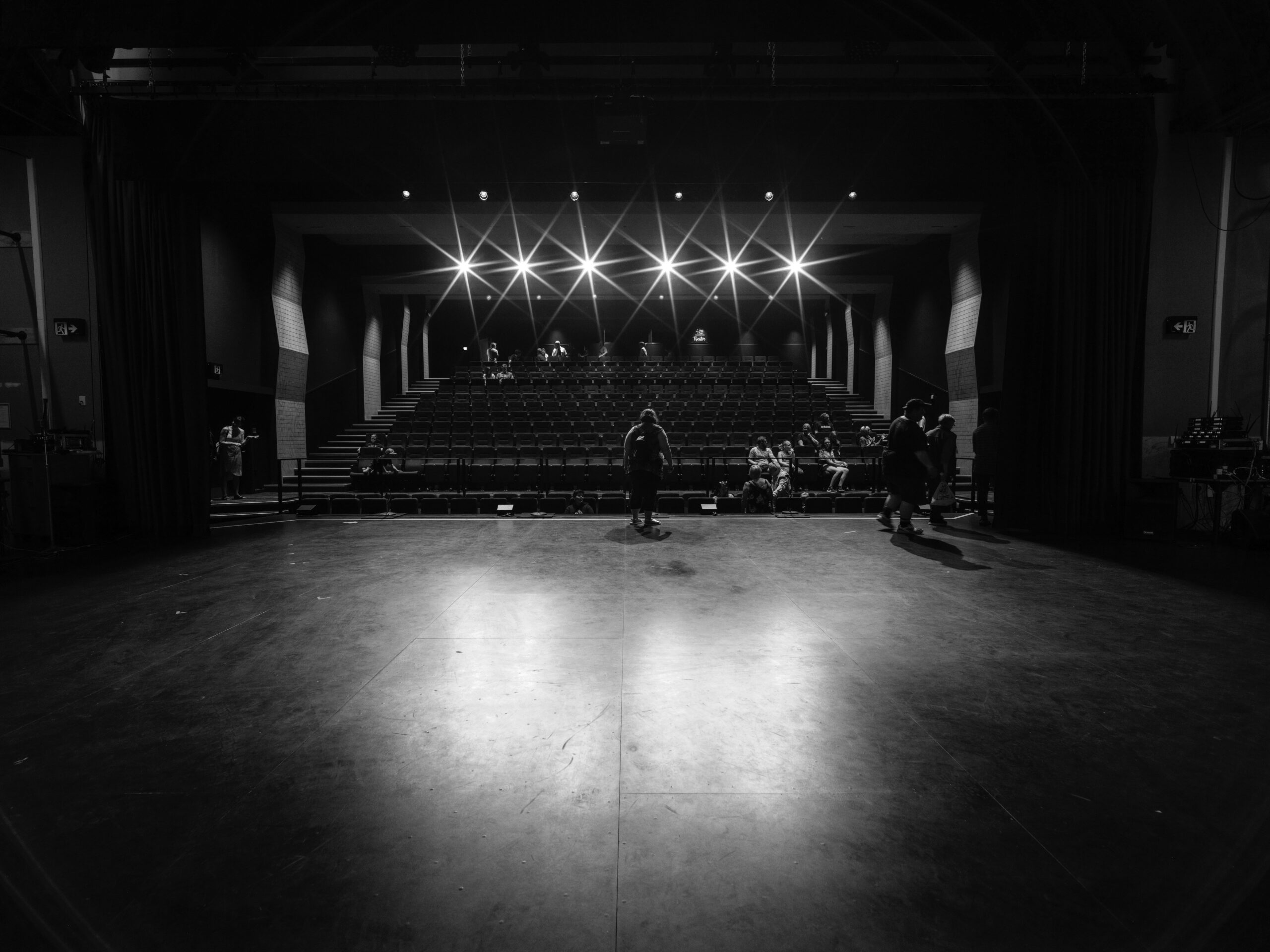The well-known podcast personality Daryl Campbell a.k.a. Taxstone was recently arrested on January 16, 2017 on federal charges of Possession of a Firearm by a Convicted Felon and Receipt of a Firearm in Interstate Commerce.[1] The arrest is related to the May 2016 shooting in the green room of a T.I. concert at Irving Plaza.[2] The incident resulted in the rapper Troy Ave being wounded and claimed the life of his body guard Ronald McPhatter.[3] As a follower of Taxstone or Troy Ave may know, both have “beef” with each other.[4]
Taxstone found a way to introduce podcasting to a demographic that typically did not listen to podcasts or have any interest in them.[5] His podcast “Tax Season” which is now on hiatus[6] has reached as high as #17 on the iTunes podcast chart and has hosted guests such as the rapper Meek Mill, attorney Kenneth Montgomery, comedian T.K. Kirkland, celebrity jeweler Ben Baller, former NFL player Chad Ocho Cinco, and streetball legend and motivational speaker Pee Wee Kirkland.[7] His interview with Meek Mill, filmed in Rolls-Royce Wraith has over over 100K views and is hosted on DJ Vlad’s YouTube channel.[8]
In the Sealed Complaint in United States of America v. Daryl Campbell a/k/a Taxstone, sworn by NYPD Detective, Jose Flores with the Manhattan South Homicide Squad alleges Taxstone “knowingly” possessed a black 9mm Kel-Tec semi-auto handgun and he received such handgun in interstate commerce.[9]
Some of the most striking facts used in the case thus far against Taxstone have been his comments made on his podcast, statements he made during his interview with VladTV, and other “public statements.”[10] The second charge related to firearm in interstate commerce referenced Taxstone being in a picture on social media with the person that allegedly transported the handgun used in the shooting at Irving Plaza.[11] Though Taxstone is not a hip-hop artist, he is in the industry that is often misunderstood by America and especially by law enforcement. The NYPD Police Commissioner at the time of the incident Bill Bratton stated, “The crazy world of the so-called rap artists who are basically thugs, that basically celebrate the violence they did all of their lives, and unfortunately that violence often manifests itself during the performances and that’s exactly what happened last evening.”[12]
Taxstone used the podcast platform in a unique way, combining comedy, journalism, and what I consider to be motivational speaking.[13] Taxstone grew up in East New York, Brooklyn and frequently talked about his upbringing and past criminal history on his podcast.[14] What is interesting about the the Sealed Complaint filed by Assistant U.S. Attorney Hagan Scotten is that it highlights Taxstone’s speech about being a member of the Bloods gang,[15] but ignores that fact that Taxstone consistently stated he was no longer a member of the gang and often spoke out against young adults being members of gangs as “dumb.”[16] Behind all of this is the larger conversation about the surveillance of persons in the hip-hop industry,[17] various tactics that police departments have used to monitor the internet and social media for potential criminal activity,[18] and the increasing use of rap lyrics as evidence by prosecutors.[19] One study cited in a UCLA Entertainment Law Review Comment found that “potential jurors were ‘significantly’ inclined to judge a gangsta rap lyricist not accused of murder more harshly and with more disdain than a non-gangsta rapper who was accused of murder.”[20]
Since Melle Mel spit on Grandmaster Flash and the Furious Five’s “The Message,” Hip-Hop has been used as a medium for storytelling.[21] However, that storytelling has increasingly been used against artists and those in the hip-hop industry as evidenced recently by the Sealed Complaint and even in the case against Bobby Shmurda.[22] Hip-Hop continues and grew up out of communities that tend to be urban and poor.[23] Naturally and unfortunately, this art form that was created by Black men coincides with the fact that Black and Latino men make up a majority of the prison population in America.[24] The lyrics of many rap songs reflect the culture of the communities where the artist is from, as they should. It is no secret that Hip-Hop artists and those in Hip-Hop industry have been targeted by the criminal justice system for years and will probably continue to be for some time even as Hip-Hop grows in popularity.[25]
The United States case against Taxstone is really about America’s inclination to demonize Hip-Hop and everyone involved. That inclination was even used to influence the determination to detain Taxstone pending trial.[26] As the case moves forward, it will be interesting to see how much of Taxstone’s involvement with the Hip-Hop industry will be brought in, including his association with artists that have rapped about their neighborhood and their experiences. Hip-Hop is a unique art form which should not be hindered with fear of prosecution but should be elevated as an art form that describes and gives an inside look on some of America’s most forgotten communities.
Gow Mosby Jr. is a second-year law student at Benjamin N. Cardozo School of Law and a Staff Editor of the Cardozo Arts & Entertainment Law Journal. He is a former radio DJ/Personality and Urban Director of an FM station in upstate New York and the current Vice-President of the Student Bar Association at Cardozo. He looks forward to a career in intellectual property, specializing in Entertainment Law.
[1] 18 U.S.C. § 922(g)(1), 18 U.S.C. § 922(g)(2), 18 U.S.C. § 924(b)
[2] Benjamin Mueller, Podcast Host Arrested in Shooting at T.I. Concert in Manhattan, N.Y. Times: N.Y./Region (Jan. 16, 2017), https://www.nytimes.com/2017/01/16/nyregion/taxstone-arrested-daryl-campbell-.html.
[3] Id.
[4] XXL Staff, Social Media Helps Detectives Arrest Podcast Personality Taxstone in Connection with Troy Ave Shooting, XXL (Jan. 17, 2017 4:10 PM), http://www.xxlmag.com/news/2017/01/social-media-taxstone-arrest-troy-ave-shooting/.
[5] Justin Charity, Taxstone is Winning the War of Hip-hop Punditry, The Ringer (Oct. 6, 2016), https://theringer.com/taxstone-tax-season-hip-hop-podcasts-3bb8c0bb4b88#.cq992l3pf.
[6] Tax Season Podcast (@TaxSeasonPod), Twitter (Jan. 18, 2017 7:26 PM), https://twitter.com/TaxSeasonPod/status/821876438789976064.
[7] Taxstone – ‘Tax Season’ American iTunes Chart Performance, iTunesCharts.net, http://www.itunescharts.net/us/artists/podcast/taxstone/podcasts/tax-season/.
[8] djvlad, Taxstone Interviews Meek Mill (Full Interview), YouTube (Nov. 3, 2016), https://www.youtube.com/watch?v=YwZZs_aJ0jY.
[9] Sealed Complaint, USA v. Campbell, No. 1:16-mj-08365 (S.D.N.Y. Dec. 29, 2016).
[10] Id.
[11] Id.
[12] Graham Rayman, NYPD Top Cop Calls Rappers ‘Thugs’ After T.I. Concert Shooting, N.Y. Daily News (May 26, 2016 10:42 PM), http://www.nydailynews.com/new-york/manhattan/bratton-calls-rappers-thugs-irving-plaza-shooting-article-1.2651325.
[13] Azeem Khan, The King of Keeping It Real: Taxstone, The Huffington Post (Mar. 22, 2016 2:28 PM), http://www.huffingtonpost.com/azeem-khan/the-king-of-keeping-it-re_b_9464154.html.
[14] Brian Joseph, The Internet’s Most Dangerous Podcast Comes Out of East New York, Village Voice (May 6, 2015 2:17 PM), http://www.villagevoice.com/music/the-internets-most-dangerous-podcast-comes-out-of-east-new-york-6627185.
[15] Sealed Complaint, USA v. Campbell, No. 1:16-mj-08365 (S.D.N.Y. Dec. 29, 2016).
[16] djvlad, Taxstone (Full Interview), YouTube (Nov. 13, 2016), https://www.youtube.com/watch?v=kGtjT0_OGrg.
[17] Brian Josephs, The NYPD’s Anti-Hip-Hop Stance Isn’t New: A Timeline, SPIN (June 15, 2016), http://www.spin.com/2016/06/nypd-irving-plaza-shooting-hip-hop-police/.
[18] Laura Entis, The Crazy, Cool and Unsettling Ways Police Are Using Social Media, Entrepreneur (May 4, 2014), https://www.entrepreneur.com/article/233604.
[19] Andrea L. Dennis, Poetic (In)Justice? Rap Music Lyrics as Art, Life, and Criminal Evidence, 31 Colum. J.L. & Arts 1, 2 (2007).
[20] Sean-Patrick Wilson, Rap Sheets: The Constitutional and Societal Complications Arising from the Use of Rap Lyrics as Evidence at Criminal Trials, 12 UCLA Ent. L. Rev. 345, 373 (2005).
[21] Trent Clark, Grandmaster Flash & The Furious Five’s “The Message” Tops Rolling Stone’s 100 Greatest Hip-Hop Songs, HipHopDx (Apr. 26, 2016 12:12 PM), http://hiphopdx.com/news/id.38524/title.grandmaster-flash-the-message-rolling-stone-100-greatest-hip-hop-songs.
[22] Gail Sullivan, How Rapper Bobby Shmurda, Charged in Murder, Drug Trafficking Sting, Became an Alleged Gangster, The Washington Post: Morning Mix (Dec. 19, 2014), https://www.washingtonpost.com/news/morning-mix/wp/2014/12/19/hip-hops-bobby-shmurda-charged-in-murder-drug-trafficking-sting/?utm_term=.8f54cd0d98de.
[23] Jonah Hahn, The Politics of Race in Rap, Harvard Political Review: Books & Art (June 8, 2014 11:51 PM), http://harvardpolitics.com/books-arts/politics-race-rap/.
[24] Paul Butler, Much Respect: Toward a Hip-Hop Theory of Punishment, 56 Stan. L. Rev. 983, 986 (2004).
[25] Id. at 996.
[26] Order of Detention, USA v. Campbell, No. 1:16-mj-08365 (S.D.N.Y. Dec. 29, 2016).



